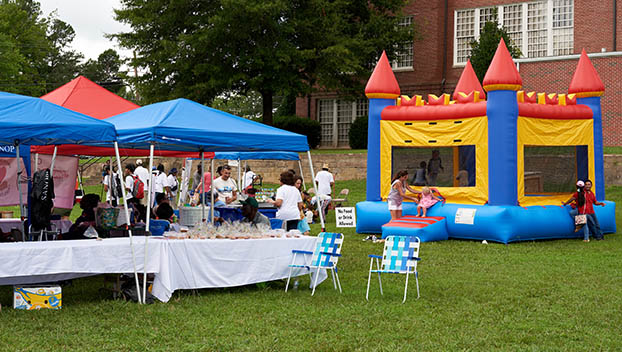New laws arrived in Lunenburg and across Virginia on July 1
Published 2:28 am Tuesday, July 1, 2025
|
Getting your Trinity Audio player ready...
|
With the flip of the calendar to July in Virginia, dozens of new laws take effect that protect children, strengthen penalties on fentanyl use and standardize care across the state for obstetric care, to name a few.
Each year, the majority of new laws and changes to existing ones passed by the Virginia General Assembly and signed by Gov. Glenn Youngkin take effect at the start of the state’s new fiscal year on July 1.
In talking with The Dispatch, Youngkin’s Press Secretary Peter A. Finocchio highlighted several new laws that are geared to protect children.
With approval of House Bill 1961 and Senate Bill 738, an executive order issued by Youngkin on making schools phone free is now law, Finocchio said in an email interview.
In Executive Order 33 issued during 2024, Youngkin stated that the necessity of implementing cell phone-free education in Virginia’s public schools is becoming increasingly evident.
“Parents, public health professionals, educators and other stakeholders across the commonwealth are expressing concern over the alarming mental health crisis and chronic health conditions affecting adolescents, such as depression and anxiety, driven in part by extensive social media usage and widespread cell phone possession among children,” the governor explained in the executive order. “Cell phone-free education will significantly reduce the amount of time students can be on phones without parental supervision.”
This new law directs each school board to develop and each public elementary and secondary school to implement policies relating to the possession and use of cell phones and smart devices by students on school property from bell to bell. It goes on to allow for exemptions from the ban for those who have a health concern or need one for an accommodation or assistive technology support.
Limiting social media time
On that same front, one of the new laws will take effect at the beginning of 2026 that requires social media platforms to determine whether a user is a minor younger than age 16 and limit their usage to one hour per day per service or app. It also allows that limit to be increased with parental consent.
Finocchio pointed to a new law that strengthens Virginia’s child welfare system by empowering foster youth and expanding access to critical services.
The new state code that came about through HB 1777, SB 1406 and SB 801 requiring the Department of Social Services or a local department of social services, a children’s residential facility or any child-placing agency to provide certain information along with the contact information for the Office of the Children’s Ombudsman to a biological parent, prospective adoptive parent or foster parent, as well as to any child in foster care age 12 or older upon the opening of a foster care case for such child, according to the Virginia Division of Legislative Services publication on new laws, called “In Due Course.”
“The law also provides that, in relation to complaints made to the ombudsman, if such child is the complainant, the ombudsman need not gain the consent of the department or local department of social services, the children’s residential facility, the child-placing agency or the foster parent or guardian of the child or other person having custody,” according to the publication.
Another new law taking effect as a result of HB 2783 makes it a Class 6 felony to place a Nazi symbol, such as the swastika, on private property with the intent to intimidate.
“The law also makes it a Class 6 felony if such Nazi symbol or emblem is placed on a highway or other public place in a manner having a direct tendency to place another person in reasonable fear or apprehension of death or bodily injury,” according to the DLS document. “Finally, the law clarifies that such Nazi symbol or emblem does not include and is distinct from the sacred swastika word and symbol of peace and prosperity used by Hinduism, Buddhism, Jainism, Zoroastrianism or Native American religions.”
People who do these kind of things are often just boys who are trying to get a reaction, according to Sam Richardson, Ph.D., who is director of the Jewish Community Relations Committee with the Jewish Community Federation of Richmond.
“At one level, it’s simply acknowledging that as a minority ethnic group, which Judaism is an ethnic religion, we are both an ethnic people as well as a distinct religious group and it’s been that way for at least 3,500 years,” Richardson said in a Friday interview. He went on to add that this recognizes that Jews are not White or just another religious grouping like a protestant denomination.
“We are a minority ethnic group and are therefore qualified for the same type of protections as any other ethnic group,” he said.
He explained the new law should have dissuaded some who understand the penalty once others are prosecuted to the full extent of it. But he also noted there will be some situations that nothing can be done to help.
Going over the need for a symbols bill
While the Jewish Community Federation wasn’t involved in developing the original bill’s language, the organization did work with lawmakers in both chambers to help address the problem.
“As you may be aware, there were some Asian groups yeah because the swastika is not originally a German symbol role for Nazi as it has other religious foundations in Asia, particularly in India, and so there were people who were concerned, and and so that there were some changes in the language that we were totally fine with,” Richardson said, noting that the federation was fine with the alternative language written for the final version of the bill.
The Jewish Community Federation also did attend hearings where they spoke in favor of the new law.
Richardson said antisemitism has increased in the U.S. and worldwide as after the Hamas attack on Israel and that nation’s response.
“It’s important people understand that while the war in Israel, the antisemitism worldwide, the growth and antisemitism incidents in the commonwealth in our local communities primarily impacts the Jewish community,” he said. “We are not the only ones impacted and so we are standing with those of us those who are our friends as well to make sure laws like this will be protecting everyone. I really would like to thank our friends in the larger Christian community who are willing to stand with us.”
On another front, Finocchio pointed to new law coming from HB 2657 and SB 746 that creates the new crime of involuntary manslaughter for knowingly manufacturing, selling or distributing drugs that contain fentanyl, the sale of which results in another person’s death.
The bill provides that venue for a prosecution of this crime shall lie in the locality where the manufacturing, sale or distribution of such controlled substance occurred, where the use of the controlled substance occurred or where death occurred, according to the summary in the online Legislative Information System.
More material highlighted in new laws
The governor’s press secretary also highlighted HB 2573 and SB 1279 that have become law requiring all hospitals, licensed birthing centers and free-standing emergency departments to adopt standardized protocols, known as “safety bundles,” for identifying obstetric emergencies for both inpatient and outpatient care.
With many military facilities located in the commonwealth, a new law enacted through SB 1272, HB 1726 and SB 757 creates a new Class 4 felony for flying drones over military bases, contracted military defense facilities, and other critical infrastructure locations, Finocchio said.
The Legislative Information System summary explains that the new law also provides that the owner or operator of a contracted defense facility and its employees shall be immune from criminal prosecution and civil liability as a result actions to prevent, stop or deter a drone from entering such property, providing that their actions do not result in the injury of anyone.
Another new law that Finocchio pointed to allows rural school districts with fewer than 4,500 students to explore alternative student transportation methods, opening up flexibility for school divisions and families. The law enacted under HB 2720 also requires training, hiring and employment requirements for those transporting students through alternative means and sets minimum insurance requirements for such contractors providing transportation services.




